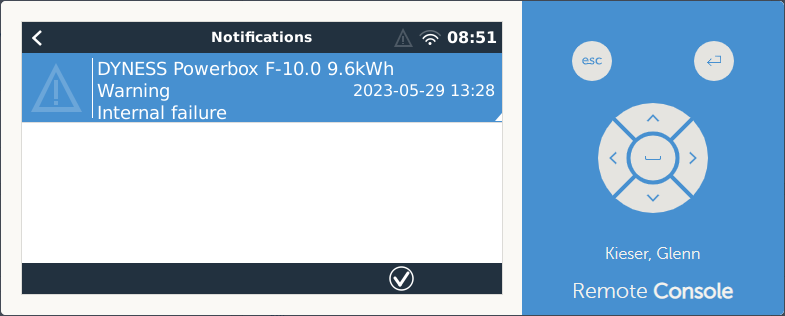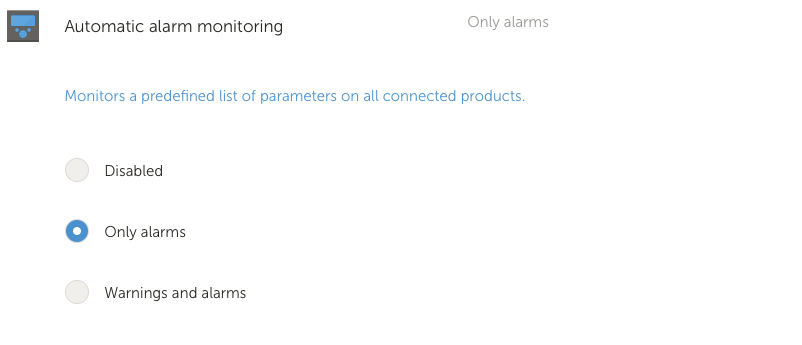My Victron Remote Console had a flashing triangle at the top. No warning or alert notification was received about a Dyness battery “Internal failure” that was eventually found in the Victron Remote Console notification screen. I believe this should have been reported by VRM.

After the warning was acknowledged (tick at the bottom of the Remote Console notification screen), the warning has been removed, but there is nothing in the VRM Alarm Log (other warnings like Overloads and High DC Ripple are listed).
Warnings and alarms are enabled, and do routinely display on my iPhone for other issues, however:
• No notification was received on VRM or via email.
• The Dyness Alarm screen in Remote Console has an OK status for all fields, and does not show any warning or fault status.
• The Dyness History screen in Remote Console is empty and does not show any warning or fault.
• There are no VRM alarm or event logs that correlate with the notification.
This occurred on an EasySolar-II 48/5000/70-50 MPPT 250/100 GX (PN: PMP482507010) and Dyness 9.6kWh Powerbox F-10.0 with the following firmware:
• EasySolar-II GX: Firmware v2.94
• MultiPlus-II 48/5000/70-48: Firmware v502
• SmartSolar MPPT VE.Can 250/100 rev2: Firmware v3.13
• Dyness 9.6kWh Powerbox F-10.0: Firmware reported by VRM Device List: v136.3
Why is this warning event not pushed by VRM or recorded in the event log? It could be an important early warning of a dangerous situation.

